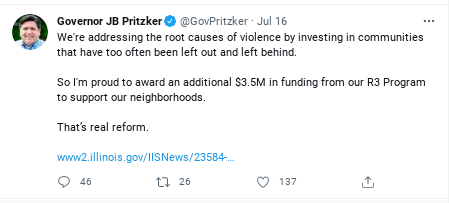The Cannabis Wire Daily newsletter is sent to C-Wire Plus subscribers every weekday morning at 7 a.m. Excerpts are published here later in the day. Don’t miss the full picture. Subscribe now.
Cannabis regulation appointments finalized in California, Virginia.
We recently reported that California Gov. Gavin Newsom had appointed Nicole Elliott as Director of the newly formed Department of Cannabis Control. Now, that appointment has been finalized, along with several others.
The Department announced its leadership team, as follows:
• Director – Nicole Elliott
• Chief Deputy Director – Rasha Salama
• General Counsel – Matthew Lee
• Administration Division – Melissa Eidson
• Compliance Division – Richard Parrott
• Equity & Inclusion Division – Eugene Hillsman
• Legal Affairs Division – Tamara Colson
“The formation of the Department is the culmination of 18 months of effort, but it is just the beginning of our efforts to improve the cannabis regulatory structure,” said Elliott, in a statement.
“Chief among our goals is to simplify participation in the legal market by streamlining licensing and the regulatory framework. Collectively, these dedicated public servants bring extensive experience from the state and local level to the leadership team. The Department and our stakeholders will be well served by this group, and I look forward to working alongside them on the efforts ahead.”
Virginia saw some big announcements, too.
Gov. Ralph Northam announced who will serve on the three major cannabis boards: the Cannabis Control Authority, which is the main regulatory agency; the Cannabis Equity Reinvestment Board, which will oversee the Cannabis Equity Reinvestment Fund and the allocation of “resources to communities that have experienced disproportionate enforcement of drug laws and economic disinvestment;” and the Cannabis Public Health Advisory Council, which will advise the Cannabis Control Authority.
The names range from cannabis industry representatives (Ngiste Abebe, Vice President of Public Policy, Columbia Care) to mainstream business representatives (Neil Amin, Chief Executive Officer, Shamin Hotels) to public health representatives (Cynthia Morrow, MD, MPH, Health Director, Roanoke City and Alleghany Health Districts). You can see the full lists here.
Further, Virginia Attorney General Mark Herring is looking to hire the state’s “first full-time, dedicated cannabis attorney,” who will “serve as general counsel to the Virginia Cannabis Control Authority while also assisting other Virginia state agencies regarding regulations and laws regarding cannabis.”
Illinois awards $3.5 million in cannabis revenue to justice grants.

The Illinois Criminal Justice Information Authority (ICJIA) announced that it would use $3.5 million from cannabis sales tax revenue to award 21 grants to “organizations offering young people and emerging adults (ages 10 to 25) pro-social activities that may reduce violence and victimization or provide increased street intervention this summer.”
The state’s adult use cannabis law requires that 25% of cannabis revenue be used to “support communities harmed by violence, excessive incarceration, and economic disinvestment.”
“We have to address the root causes of violence and invest in communities and the people who deserve more resources and opportunities than they have historically been given” said Lieutenant Governor Juliana Stratton, in a statement. “When we empower people, we change lives and communities.”
Researchers find cannabis domestication in China, 12,000 years ago.
A global group of researchers from universities from Switzerland to China conducted a study analyzing 110 whole genomes of a wide spectrum of cannabis plants from across the world. These plants included “wild-growing feral plants, landraces, historical cultivars, and modern hybrids from both hemp and drug types.”
The authors found “the time and origin of domestication, post-domestication divergence patterns and present-day genetic diversity,” the study noted. “We show that cannabis sativa was first domesticated in early Neolithic times in East Asia and that all current hemp and drug cultivars diverged from an ancestral gene pool currently represented by feral plants and landraces in China.”
This study was published in the peer-reviewed journal Science Advances.






